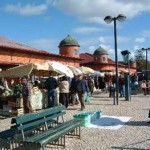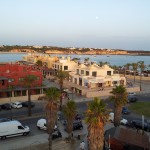Suggested VAT rise for wine and culture may happen

We haven’t reported very much on the start-of-year financial news coming from the Algarve, but it’s about time to do so because today we’ll be talking about another potential VAT rise that will surely affect tourism to the region and that people need to be aware of.
It appears to tat the International Monetary Fund – IMF – sees some untapped financial potential for the Portuguese government to increase the VAT on goods and services like wine, processed foods and cultural events thus further widening the tax base. The current VAT for these is set at 13% and the IMF suggests that it can go up to 23%.
This assessment is part of the IMF country report which is part of the sixth evaluation of Portugal’s bailout programme.
While the IMF recognizes that equity concerns are the main argument for the reduced VAT rates, when it comes to more absolute terms, higher income earners end up benefiting much more from it than those with medium and low incomes.
This would mean that significantly reducing the number of goods and services that are subject to these lower and intermediate VAT rates can be a “positive policy”.
What this means in more clear information is that all of the items subject to the intermediate rate of 13% – wine, cultural events, processed food – would start being taxed at the maximum rate of 23%.
This will mean that the minimum VAT rate of 6% which is applicable to meat, fish, vegetables and other basics, would see a rise to the intermediate rate of 13%.
The report concludes saying that the country faces a very significant challenge to complete its fiscal consolidation while also enhancing the equity and efficiency of its fiscal policy.
While all of this reporting was going on, many Portuguese organizations have already staged protests against the suggested VAT rise with the president of the Farmers Confederation of Portugal saying that his organization is totally against the VAT hikes for farming produce because the measure won’t bring in more tax revenue, but it will instead hurt the entire chain from producers to consumers.




















